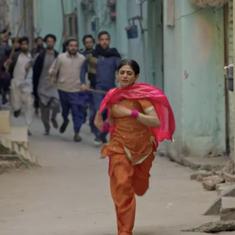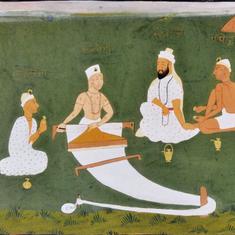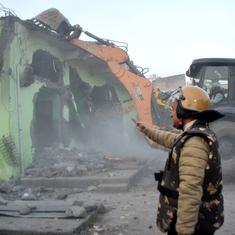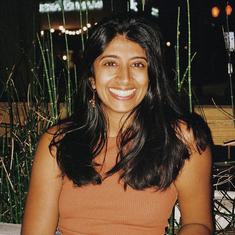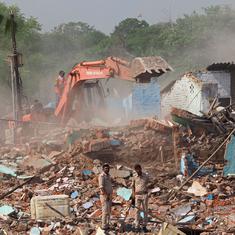Optics and messaging have been taken as importantly as substance, and that is very intentional. Speaking at the launch of C Raja Mohan's new book, Modi's World, foreign secretary S Jaishankar outlined just how the focus on public relations has played a part in expanding India's influence on the world stage.
"Think of the Madison Square Garden event and the presence of 30 plus members of the U.S. Congress. Recall the meeting with President Xi Jinping in Xian. Remember Barack Obama’s visit on 26th January. Or the bonding with Shinzo Abe in Kyoto," Jaishankar said at the launch.
"Assess the recent response of Nepal and Bangladesh on longstanding issues. Look at Op Rahat in Yemen and Op Maitri in Nepal. Consider the integrated tours of Central Asia, East Asia, or the Indian Ocean. So let me ask you: does this look like diplomacy as usual?"
Jaishankar laid out the four aspects of Modi's foreign policy in connection primarily with the publicity and how it plays into the country's interests in the neighbourhood and beyond.
*Developing Narratives
Building a story around the idea of India is important. For example, India would like to convey the idea that, in addition to being a country with one of the biggest populations and economies, it is also a benevolent nation that attempts to do good things for the world. This, Jaishankar explains, makes it easier to demand a proper seat at the table of global decision-makers.
"You would have noted the attention paid to India’s sacrifices in the First World War a century ago. Fast forward to our extraordinary record in peace-keeping operations. Now look at the impressive disaster response efforts, including Nepal and Yemen," he said. "See how the story of an India that has always done its utmost for the world strengthens our position as a responsible international stakeholder and our credentials for a permanent seat in the UNSC."
*Messaging
Every prime minister does this of course, but the specific implementation can still have a large impact. Jaishankar said that terms like "Neighbourhood First" or even moving from "Look East" to "Act East" helps in assimilating and implementing changes.
"Reflecting these terms appropriately and effectively in our dialogues is truly worthy of consideration. And the use of social media, you will agree, has given our diplomacy a definite edge."
*Soft Power
Yoga always had an indelible link to India, yet India never really made this explicit, at least at the state level. Modi's government decided to change that, and Jaishankar explains that this helps build "soft power," connecting the idea of India to useful bits of culture that are popular worldwide.
"This is perceived as a universal expression of Indian culture. Nothing could be more effective in bringing out the relevance of our heritage and traditions. A less noticed example is of India’s connections with Buddhism, a message that somehow got increasingly obscured after the 1950s. This too has great potential."
*Desis everywhere
Modi has made a concerted effort to reach out to Indians abroad wherever he goes, making a point of speaking to them directly and in some cases encouraging them to be involved with the process of development. Again, every PM has taken Non-Resident Indian and Persons of Indian Origin seriously, with the Pravasi Bharatiya Divas as an example of this, but Modi has cleverly used the press scrutiny that he attracts to focus on the work of desis everywhere.
"Their achievements have long been broadly appreciated," Jaishankar said. "But till now, we have perhaps not fully utilised their role as bridges to different societies. Motivating them is key to their making a fuller contribution to their land of origin."
One paragraph in Jaishankar's speech attempted to explain all that Modi has actually done in his 14 months as PM.
A neighbourhood policy that puts a premium on connectivity, contacts and cooperation. Where required, one that is both reasonable and firm. A China policy that triangulates security interests, economic cooperation and international politics. The nuclear initiative – a matter as close to my heart as Rajamohan’s and one on which we cut our teeth four decades ago – has moved back into active terrain. We have seen forward movement with US, France and Russia and work in progress with Australia and Japan. The land boundary agreement with Bangladesh and the connectivity understandings have been game changers. Cooperation on power generation and our post-earthquake assistance have transformed the Nepal relationship. A coherent Indian Ocean strategy is under implementation. Visits to even nearby nations after decades and impending summits of the Pacific islands and of African states represent a different mindset. Our flagship development programmes are attracting favourable international response. The impression of India being somewhat easier for business has started to make an impact as well. And personal chemistry has emerged as a powerful tool in our diplomatic kit.
In all, Jaishankar claims that this has clarified India's priorities on the global stage and connected India's diplomacy to national development with the full use of "personal chemistry, narratives, culture and our diaspora." He also acknowledge that while not all of these efforts are new, they build on a strong foundation and open up new avenues for the country.
"Some of these are new developments. Others are a decisive conclusion of an unfinished national agenda. Either way, they signal different times. They speak of greater confidence, more initiative, certainly stronger determination and obviously, express the growth of our capabilities. In many ways, they constitute both a larger footprint and a more intensive one. It is, therefore, time to ask ourselves whether India should raise its level of ambitions."
Discuss this story on Facebook here.

